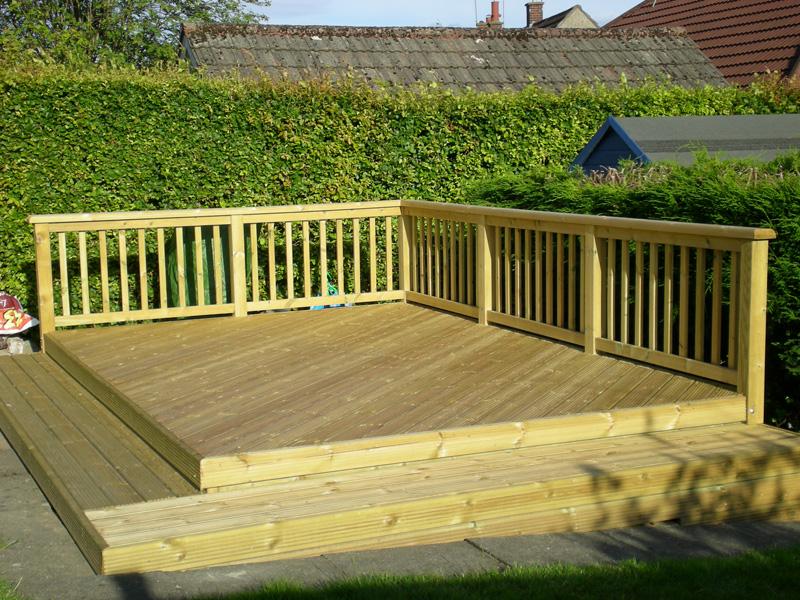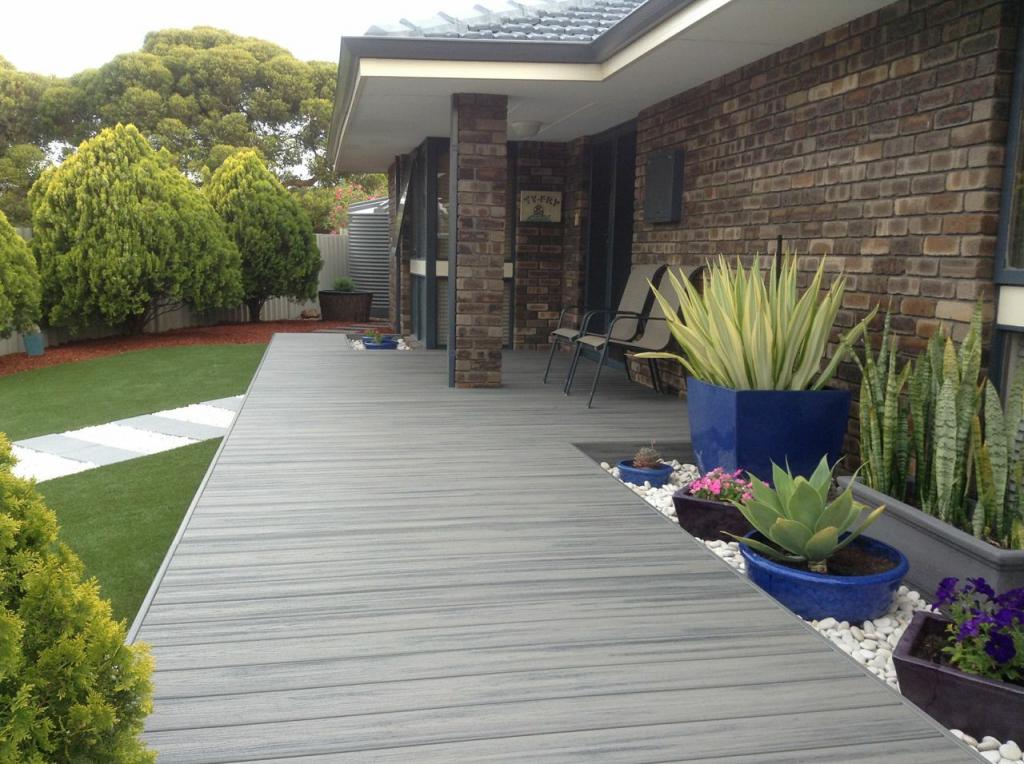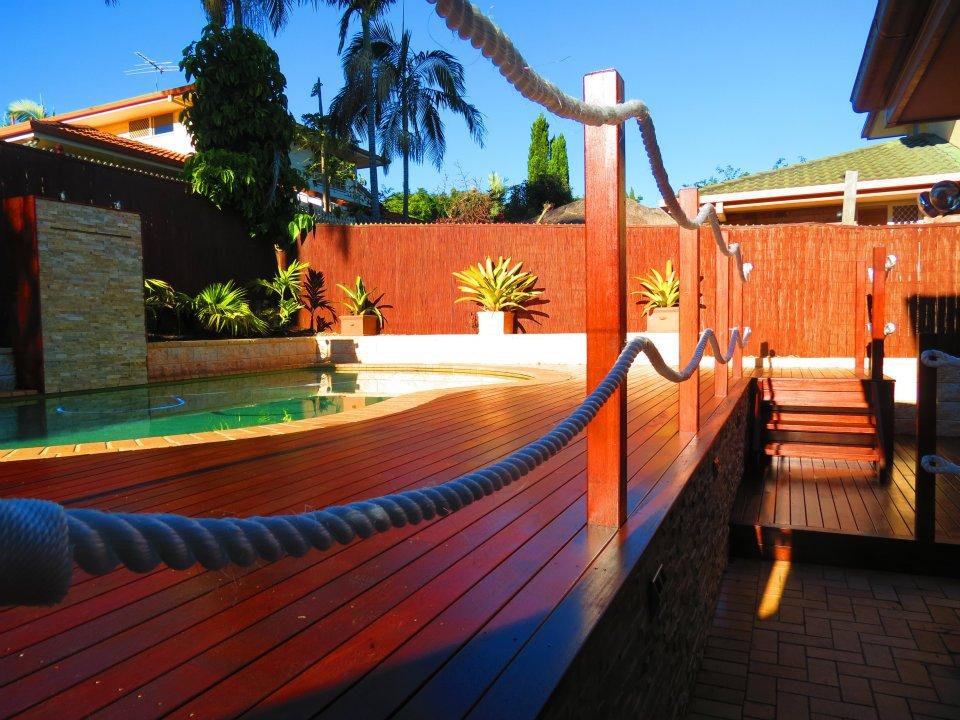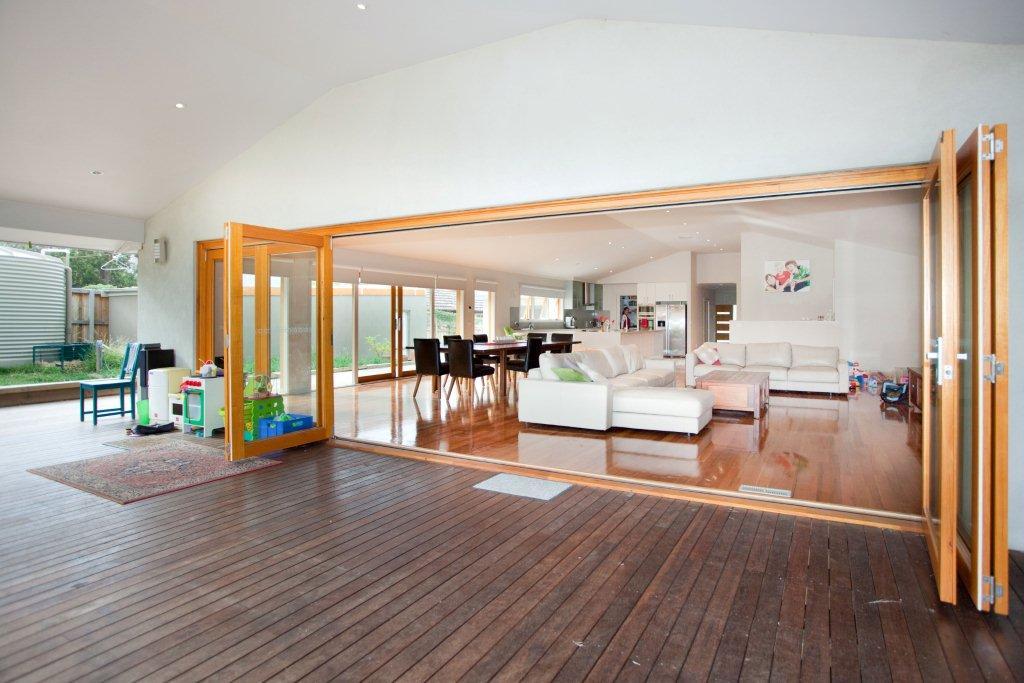Find local Deck Builders near me
33,000+ professional tradies to choose from
We verify licences and business registrations
20+ years connecting homeowners to local tradies
Receive up to 3 free quotes from trusted tradies
Where do you need Deck Builders?
33,000+ professional tradies to choose from
We verify licences and business registrations
20+ years connecting homeowners to local tradies
Receive up to 3 free quotes from trusted tradies
Average rating of Deck Builders servicing Australia
4.8
How to hire the best local Deck Builder near you?
Decking can be an inexpensive way to extend your living space. A professional deck builder can recommend the best material for your decking and complete the installation to the high standard you need.
Compare quotes from professional deck builders in your area on hipages and read reviews from satisfied customers to help you choose the best tradie for your job.
Licensing requirements for deck builders vary by state and by the size and complexity of the job.

Why might you need to hire a deck builder?
Decking can extend your outdoor space and add value to your home. A deck builder can take care of your whole decking project. Their duties include:
- Taking accurate measurements
- Discussing deck materials and options
- Estimating materials and costs
- Planning your deck layout
- Installing your deck in line with current codes and standards
Types of decking
Decking was traditionally made of timber, but today there are more options to choose from. Your deck builder can explain all of your options for:
- Timber decking
- Bamboo decking
- Composite decking
- UPVC decking

Timber decking
If you prefer the look of natural timber, you have a range of options, from softwood and hardwood timber decking to recycled timber. Some of the most popular timbers for decking include:
- Treated pine
- Merbau
- Blackbutt
- Silver ash
- Spotted gum
- Ironbark
- Jarrah
Treated pine is the least expensive option. Pine is a soft timber that can be stained and polished to look like a more expensive timber, but it may not stand up to rough treatment and can be scratched and dented more easily than denser timbers.
Merbau has been a popular decking timber for generations and can be less expensive than some other hardwoods. The disadvantage of Merbau is that it is a tropical timber, so you may not know if sustainable harvesting methods were used.
Blackbutt, silver ash and spotted gum are all Australian timbers and are sustainably grown and/or harvested. Spotted gum takes stains well, so is a good alternative to treated pine if you want to stain your deck.
Ironbark is one of the densest timbers available and is rot and termite resistant, but this comes at a higher cost.
Jarrah is prized for its beautiful colour, but there is some concern that slow-growing jarrah stocks are being depleted too quickly.
If you live in a bushfire hazard area, it's essential that you choose decking that can be used safely. Read our guide to choosing bushfire rated building materials or ask your deck builder for more information.
Another option is recycled timber, which can have a number of advantages. If you're environmentally conscious, you can be confident that you're not using recently harvested timber. Recycled timber has had years to cure, which gives it a beautiful patina when sanded and sealed, though it may look weathered when raw.
Any timber you choose will need to be oiled, sealed and/or polished. Oiled and sealed timber will have a more natural appearance or you can seal and polish the deck to give it a glossier look. Before the timber is sealed, all nail holes will need to be filled and the timber should be sanded.
You can use timber in wet areas, but composite or uPVC decking may be a better choice. Natural timber around a pool or any other wet area will require more maintenance than timber that is covered or subject only to periodic rain.

Bamboo decking
Bamboo is technically a grass, but it's often treated as a type of timber decking, and bamboo is often stained to resemble natural timbers during the engineering process.
Engineered bamboo comes in long lengths (up to 6.4 metres) and can be wider than natural decking timbers. Bamboo is fast growing and is often plantation grown, so it can be considered a green alternative to natural timber.
Bamboo fibres are very tough and not subject to termite damage, but it still has to be maintained in the same way timber does. A bamboo deck will need periodic cleaning and resealing, with pressure washing recommended before resealing.

Composite decking
Composite decking or wood-plastic composite (WPC) decking is now a popular alternative to natural timber. This decking is a mixture of timber by-products, plastic (sometimes recycled plastic) and chemical agents. It's manufactured in moulds and can have a natural timber grain look, with colours varying from natural timber to different stained effects.
Composite decking costs as much as premium timber decking, but it's easier to maintain. It is UV-treated to resist fading and deterioration and doesn't require periodic sanding and resealing. Composite decking will not rot or become termite infested and it can be a good choice for decks that are in contact with grass or for use in wet areas, such as pool decking or around an outdoor spa.
If you choose composite decking, choose a product with a long warranty period. You will pay more for the better quality, but you'll be happier with your deck and won't need to replace it so soon.

UPVC decking
An alternative to WPC decking is uPVC (Polyvinyl chloride) decking. Early versions of uPVC decking were subject to cracking when exposed to heat, but newer uPVC decking has overcome that problem. Like composite decking, uPVC decking is termite resistant and easy to maintain. It's also more fade-resistant than in the past.
As with composite decking, choose better quality uPVC decking that comes with a long warranty. If you live in a bushfire area, look for bushfire resistant uPVC decking.

Deck design
Whatever type of decking material you choose, you have a range of design options. It's a good idea to choose your design before you choose your decking material. You can choose between a simple flat, rectangular deck or have a deck builder make a more complex design, such as:
-
Elevated decks – decks that are raised off the ground to avoid contact with grass and soil. Timber is better suited to elevated decks, as a higher deck allows the top and bottom of the timber to breathe, making it more stable and rot-resistant.
-
Enclosed deck – a deck can be fair-weather and exposed to the elements or may be enclosed to allow you to enjoy your deck throughout the year. If you add bi-fold doors, your deck can become a home-extension.
-
Multi-level deck – a deck doesn't have to be one level surface. Installing a multi-level deck can create a more interesting and useful deck. For example, you can use the upper level for relaxing or entertaining and the lower level for another purpose. Installing a deck with more than one level is a good way to divide a deck into zones and can be the perfect solution if you want decking over a large area.
-
Decking over concrete – if you have a concrete patio and wish you had installed decking instead, you can install decking over concrete. Read our article decking over concrete to find out more.
How much does a deck builder cost?
A deck builder or carpenter may charge around $50 per hour to install decking, but this can vary from $40 to $120 or more, depending on the job and your location.
The cost of decking materials themselves can be anywhere from $200 to $1000 per square metre.
- Treated pine decking is the cheapest option from around $200 per m2
- Hardwood decking costs upwards of $320 per m2
- Composite decking and UPVC cost from $350 per m2
- Bamboo decking costs about the same as better quality timbers
Questions to ask when hiring a deck builder
There's more to think about than just the price when hiring a deck builder for your project. You should also find out:
- Are they licensed and insured?
- Do they have experience working with this type of deck?
- Does the quote include everything you'll pay?
- Is the deck covered by warranty?
Get quotes from local deck builders now
Costs and prices in this article are indicative and should only be used as a guide. They also vary locally and are subject to market forces.